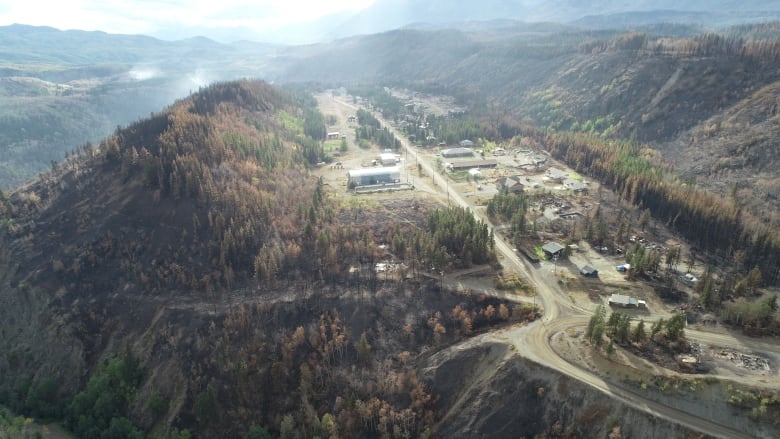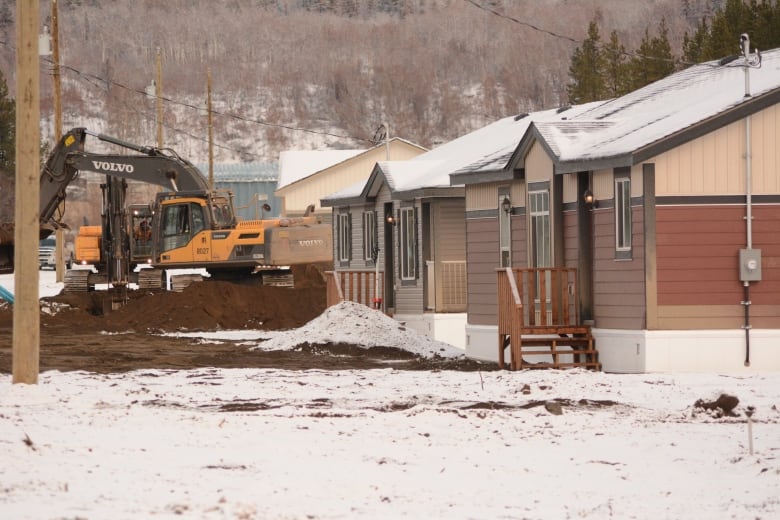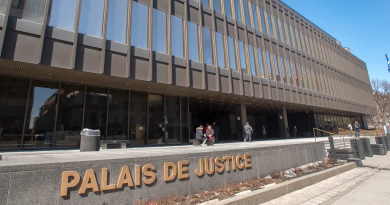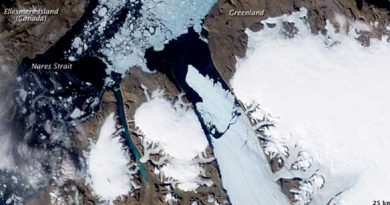Wildfire emerges from hibernation near Telegraph Creek, northwestern Canada

Last year’s devastating wildfire in and around Telegraph Creek, British Columbia was never fully extinguished — and firefighters are now back in the area, dealing with its re-emergence in spots.
Carolyn Bartos, a fire information officer with B.C.’s Wildfire Service, describes these “holdover” fires as being under control, with no threat of spreading.
“An over-wintering fire occurs when a wildfire that burns deep into the ground continues to smoulder all winter,” she said.
“So, kind of like picturing your woodstove that’s dampered really, really low, and once it gets presented with the right weather conditions, it can re-emerge — and that’s what we are seeing here.”
The Alkali Lake wildfire burned for months last year, resulting in a 102-day evacuation order in Telegraph Creek that wasn’t lifted until November. The fire destroyed more than 20 homes and dozens of other structures in and around the community, including the daycare and a residence for nurses.

Bartos says there are now five small holdover fires burning in the area, with the closest about four kilometres south of Telegraph Creek.
“It is reported from a homeowner, who says she’s kind of intermittently seen this fire smoke throughout the winter. It’s not a forest fire per se, but there was heat detected with the infrared scanner,” she said.
Wildfire crews typically do aerial scans of areas that have been affected by large wildfires, looking for any “potential hotspots,” according to Bartos.
“These scans will keep happening, there will be overview flights continuously happening,” she said.
Nine firefighters have been stationed in nearby Dease Lake since last week, dealing with the reported holdover fires.
With files from Philippe Morin
Related stories from around the North:
Canada: Wildfire evacuations have unique impacts on Indigenous communities: study, CBC News
Finland: Warm temperatures recorded across Finland, Yle News
Sweden: Is Sweden better prepared after last year’s historic wildfire season?, Radio Sweden



